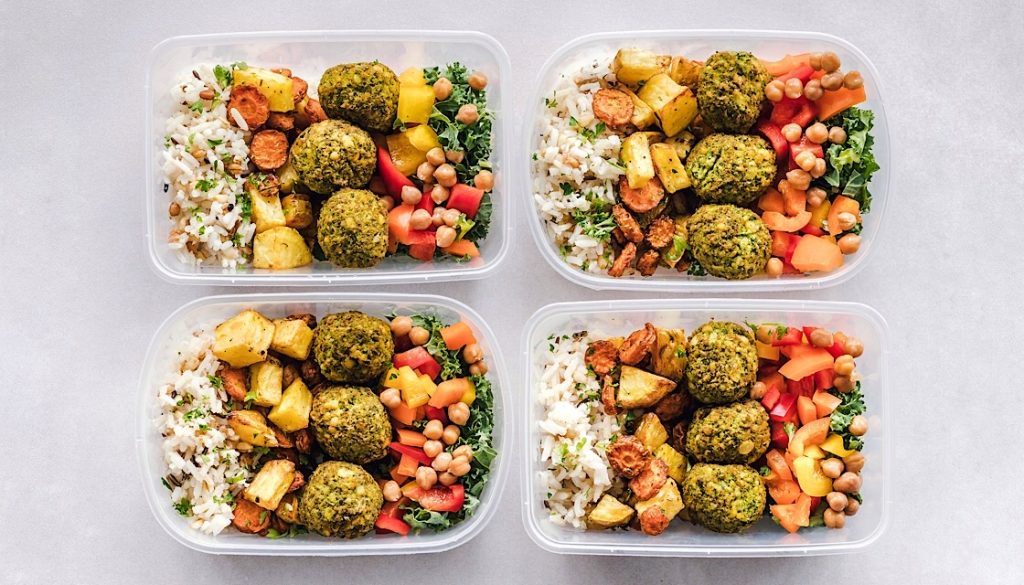Not many people realize that the science behind the food stigma has significantly evolved.
Health awareness has evolved between understanding what the body needs and understanding what kind of consumption can harm you.
We sort out the science from the hearsay and debunk the diet rules that could be stopping you from maximizing your health and performance.

Egg
Myth: You can’t have more than 2 eggs per day.
Fact: Eggs are good.
Egg is a great source of high-quality protein for veggies and meat eaters alike. Eggs contain all of the essential amino acids, including leucine, which is important for the synthesis of new muscle protein.
Eggs can be part of your post-workout meals to aid recovery. A three-egg omelette or scramble contains the recommended 20 grams of protein to support muscle repair.

Fat
Myth: Fat makes you fat.
Fact: Eat natural fats to fight the flab.
When fat is combined with sugar and additives, it can be highly palatable.
Although many manufacturers have sworn off the use of trans or hydrogenated fats, it is worth checking the label usually found on cheaper peanut butters and processed foods.
Instead of avoiding fat, you can add more healthy fats to your diet and meals. A professional athlete eats around 100 grams of healthy fats per day in combination with good quality carbohydrates and proteins. Healthy fats also include olive oil, nuts, seeds, oily fish and avocados. You can rebalance the amount of omega 6 to omega 3 by swapping vegetable and seed oils for olive or coconut oil.
Did you know that butter is one of the few sources of dietary vitamin D, which contains fat soluble vitamins and is a natural unprocessed fat.

Eating
Myth: Graze throughout the day.
Fact: Eat when you need to.
Weight loss is improved by increased meal frequency, provided the total calorie intake is the same. If you have eaten a decent slow-release breakfast, you don’t necessarily need to snack after that.
The idea is to make it practical. If you fare better on three large meals, stick with it. Similarly, if you find that a regular snacking pattern helps you with your energy levels or appetite, then go with that.
If you are training, it is important to take it into account and plan meals accordingly. You will probably fare best on six meals a day. As training volume reduces, you can decrease meal frequency.
It is good to have carbohydrates with good quality protein and healthy fats in your meals.

Calories
Myth: A calorie is a calorie and calorie is always bad.
Fact: Not all calories are created equal.
The quality of the calories you’re consuming matters as much as the number of calories. To put it more simply, you can’t get away with eating junk food, even if you’re in energy balance.
Although it’s useful to have a ballpark figure for total calories, such as 2,000 a day, it’s important to remember that the calculations used to determine requirements are approximations only, and should be only used as a reference point.
Instead of getting fixated on calorie counting, focus on removing refined carbohydrates and processed foods in favour of a nutrient-dense diet. That means a high intake of fruit, salad and vegetables, wholegrains and good quality protein and fats.

Supplements
Myth: Dietary supplements are better performance.
Fact: Eat whole foods to benefit.
You may have popped a pill in the past to support your training, but the emphasis is now on the use of wholefoods to boost your natural defences.
In a 2012 study from Edinburgh University, researchers found a daily serving (85 grams) of antioxidant-rich watercress was effective in counteracting the DNA damage caused by short bursts of intense exercise, whilst scientists from Germany found that those with a high intake of fruit and vegetables (equal to 5 portions) had significantly higher levels of antioxidants and lower levels of free radical damage than low consumers (equal to one to two portions).
It is good to consume plenty of bright and densely colored fruits, vegetables and nutritious wholegrain and proteins. It is good to include a nutrient dense salad after a training session, and think about making small adjustments to meals and snacks to increase nutrient density.
You can consider adding cinnamon, flaxseeds or goji berries to porridge, dress salads with olive or walnut oil and seeds, and add leafy greens or a teaspoon of high-quality cocoa powder to smoothies.

Willpower
Myth: It’s all about willpower.
Fact: It’s all about your environment.
Whether you’re trying to lose weight, improve your diet or simply boost your performance, it is not always about your willpower. Contemporary psychology may be important, but your environment is every bit as important as your shopping list.
When you dine in front of your computer, you will end up consuming more. Studies show that when we combine eating with other activities, our brains miss the subtle signals that tell us we’re full. Studies also show that the larger the bowl, plate or package and the more you’ll eat.
You can adopt some simple strategies to improve your eating environment, such as banning yourself from desktop dining or eating in front of the TV, ridding your cupboards of the foods you find hard to resist.
You can also stack healthy options at the front of your fridge as you’re five times as likely to eat the first thing you see than the third thing, so give the nutritious stuff the priority spot in your fridge.




